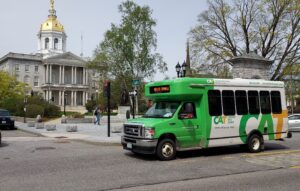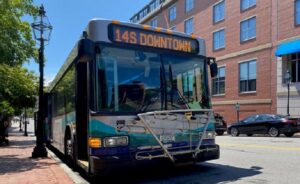This guide is the culmination of research conducted as part of the National Cooperative Research Program (NCHRP) Project 20-65 Task 68: “Successful Mobility Management Practices for Improving Transportation Services in Small Urban and Rural Areas”. The objective of this research was to identify best practices and analyze successfully implemented rural and small
urban mobility management programs that can be considered and replicated by State Departments of Transportation (DOTs) and their sub-recipients across a range of environments.
Communities across the country are seeking mobility management practices that offer innovative approaches for delivering coordinated transportation services, particularly when serving older adults, people with disabilities, veterans, and low income individuals. Many communities are implementing successful mobility management services, and their mobility managers are out in front — facilitating partnerships, negotiating agreements between providers, and identifying opportunities to share resources and reduce costs for transportation services. Mobility managers often serve locally as a neutral party, one that is seen as impartial when leading efforts to increase collaboration, to use available resources.




